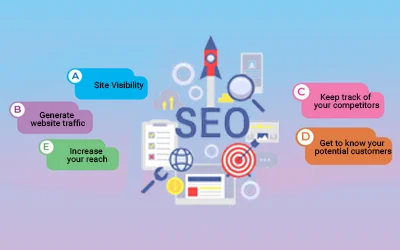E-commerce is growing at a rapid pace worldwide· If you are looking to build an online store, Magento is one of the most effective e-commerce systems that you must not forget·
This focused guide will offer insight into Magento eCommerce and why it is the ideal strategy to power your online commercial enterprise·
Let's start by knowing what is Magento?
What is Magento?
Magento is an open-source e-commerce platform built on PHP and the Zend framework. It was launched in March 2008 with the help of Varien.
It has become one of the most used frameworks for building e-commerce websites.
Over the years, it has helped more than 250,000 merchants worldwide, including famous manufacturers such as Nike, Samsung, Nestle, and more.
Here are some key specialties of Magento eCommerce:
- Robust product management - Allows for the creation of simple and configurable products and the management of inventory, discounts, images, reviews, etc.
- Powerful CMS capabilities - Helps create SEO-friendly content pages with features such as customizable widgets, inline editing, and pre-designed templates.
- Multi-store support - Manage multiple stores under a single Magento admin for different brands, B2B vs B2C, geographies, etc.
- Order processing and management - Supports multiple payment methods, shipping options, invoices, packing slips, returns, etc.
- Customer account management - Customers can create accounts, track orders, manage shipping/billing info, favorite products, reorders, etc.
- Powerful marketing capabilities - Tools for promotions, coupons, related products, recommendations, email marketing, and more.
- Search engine optimization - Built-in SEO best practices for clean URLs, meta tags, ALT text, etc., to boost search visibility.
- Security - Protection against exploits, data encryption, access control, and more for secure transactions.
- Analytics and reporting - Integrates with Google Analytics. Dashboards for sales, customer acquisition, traffic sources, etc.
- API and extensibility - Allow easy integration with third-party systems. Extend functionality via extensions and custom development.
- Responsive Layout - The Magento ecommerce platform routinely adapts to any device for ideal browsing and shopping.
Magento is built to be a business enterprise, nicely scalable and customizable e-commerce software program. It follows excellent practices for performance and security and has a modular structure.
After knowing what is Magento eCommerce, let's move forward toward knowing what is Magento used for.
Why Use Magento?
Here are some of the top reasons why small and large online businesses should choose the Magento ecommerce platform for their ecommerce store:
1. Open Source and Customizable
One of the quality factors of eCommerce Magento is that it is an open-source platform. This gives you access to all the powerful features without having to pay any license or subscription fees.
The Magento software program is incredibly customizable due to its open-source nature. Developers can easily extend it by modifying the core code or via extensions. You can add new features and modify the platform to suit your specific business needs.
2. Freedom to Choose Hosting Services
Magento allows the freedom to choose your preferred hosting provider instead of locking you down to any one vendor.
You can select the hosting service that best meets your performance, reliability, storage, and budget requirements. Easily migrate between different cloud hosting platforms as your traffic grows.
3. Enterprise-Grade Solution
Magento software is designed to deliver enterprise-level performance, security, and scalability capabilities required by large online retailers.
It can smoothly handle huge volumes of products, traffic, orders, and transactions. You can start small on shared servers and scale up to VPS or dedicated servers as your business grows.
The codebase follows best practices and is well-structured to build complex, high-performance ecommerce stores.
4. Increase Website Speed
Magento helps create fast ecommerce stores with improved page loading times. Research shows faster sites directly lead to more user engagement and conversions.
Fast page loads engage today's demanding buyers expecting instant access. With Magento's speed capabilities, retailers can focus on innovation rather than performance tuning. Speedy stores simply sell more.
5. Responsive Mobile Experience
Magento provides an optimized shopping experience with best website responsive creation for all types of mobile devices.
With Magento's responsive design, the website mechanically adapts itself to fit the small screens of phones and tablets. Buttons/links are spaced out for easy tapping.
This ensures consumers get excellent mobile shopping allowing them to conveniently browse, cart, and buy from anywhere at any time.
6. Powerful Marketing and Promotion Capabilities
Maximizing conversions and using repeat business is critical to eCommerce profitability. Magento comes with a rich set of marketing features from the field – such as promo rules, coupons, related goods, instructions, objects viewed today, advertising and email marketing, and more.
You can create targeted campaigns and promotions to increase engagement and revenue. Abandoned cart recovery through Magento eCommerce makes it easy to bring back misplaced customers.
7. Optimized for Search Engines
Magento software follows SEO best practices by default for pages, metadata, URLs, navigation, product attribute schema, etc. This makes it easier to optimize your online store for search engines like Google.
Higher organic visibility and traffic from SEO ultimately lead to higher revenues. Magento ecommerce development also integrates easily with Google Analytics for in-depth tracking of your store traffic and campaigns.
8. Mobile Ready for Omnichannel Retail
Responsive eCommerce Magento store provides an optimized browsing and shopping experience on mobile, tablets, and other systems.
Around 60% of shopping traffic comes from smartphones· With Magento eCommerce development; you don't want separate mobile apps or websites because it robotically adapts to every device. Omnichannel retail is crucial, and Magento makes it easier.
9. Support Multiple Stores from One Admin
A key advantage of the Magento eCommerce platform is the ability to run multiple online stores from an single dashboard. This is ideal for marketers with separate websites for specific brands, B2B/B2C segments, or geographies.
You can manage products, inventory, orders, and customers for all stores from one centralized Magento admin panel. This eliminates duplication of efforts and streamlines management.
10. Integrates Seamlessly with Other Systems
Magento ecommerce development provides extensions to integrate smoothly with third-party applications like ERPs, order/warehouse management systems, accounting, CRM, and more.
You don't have to build custom integrations from scratch. Just use the many integrations and ecommerce plugins available on the ecommerce Magento Marketplace.
11. Strong Global Community
Magento has a significant large community of developers, designers, businesses, and consultants. If you want to outsource your tasks, there is plenty of skilled talent available with Magento expertise.
The community forums also provide support and the ability to troubleshoot any challenges you face with your Magento store.
Conclusion
Through this comprehensive blog, it must be clear what is Magento. In brief, Magento is undoubtedly one of the most powerful open source ecommerce platforms available today. It offers enterprise-grade capabilities and extreme flexibility to build customized online stores.
With its vast ecosystem, developer community, and SEO-friendly marketing features - Magento is used to create feature-rich ecommerce experiences that drive business growth.
However, to get better assistance in building an ecommerce platform, consider contacting Invoidea, the best ecommerce website development company in Delhi. They will assist you in creating a platform customized to your business needs.











